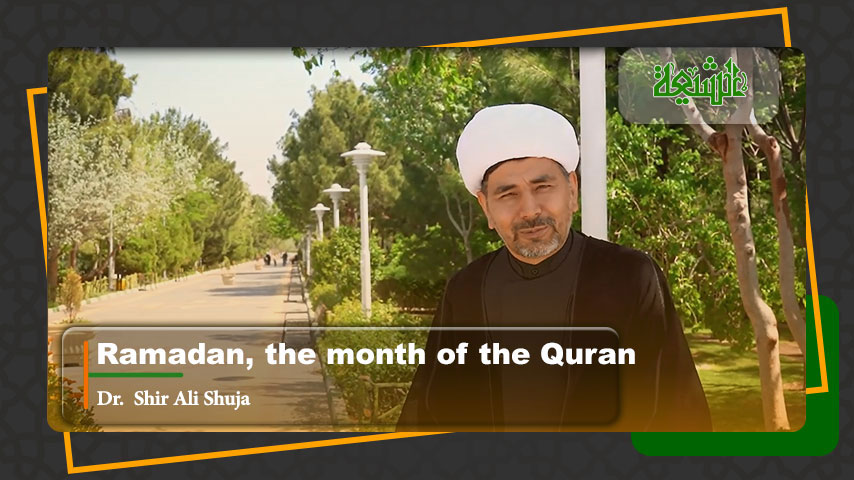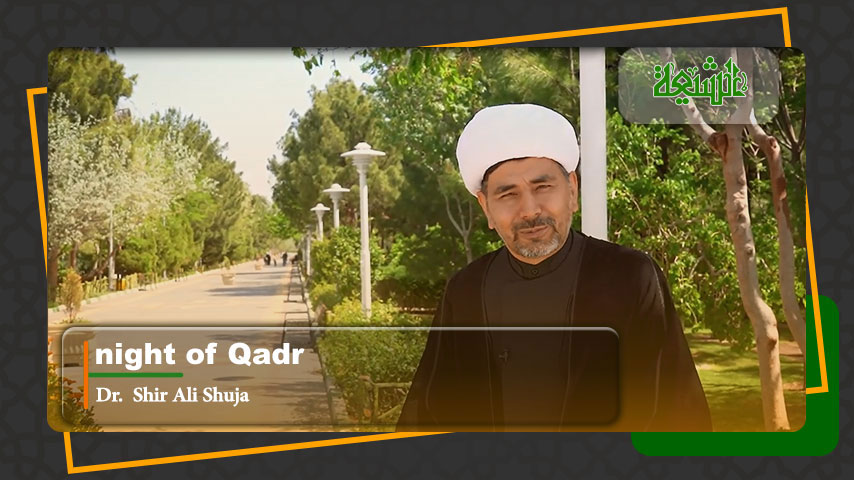Ayatollah Sayyid Abu Qasim Kashani was a prominent religious and political figure[1] in 20th century Iran, playing a crucial role in the country’s historical and political landscape. Ayatollah Kashani was born in Tehran, emerged as a key leader during the Iranian Constitutional Revolution and later became a significant influence in the political movements leading up to and following the nationalization of the Iranian oil industry in the 1950s. His actions and beliefs not only shaped the political discourse of his time but also left a lasting impact on Iranian society.
This research paper aims to explore the multifaceted personality of Ayatollah Sayyid Abu Qasim Kashani, examining the various factors that shaped his character and influenced his actions. By delving into his early life, religious and academic training, personal traits, political involvement, and social impact, this study seeks to provide a comprehensive understanding of Ayatollah Kashani’s personality.
Family Background
Ayatollah Sayyid Abu Qasim Kashani was born into a distinguished and religiously significant family in Tehran, Iran, in 1885-86. His father, Sayyed Mustafa ibn Sayyid Husain Kashani was a great Shia religious authority and a source of emulation (Marjaʿ-e taqlid)[2], who died in Kadhimiya on June 18, 1919 and was buried in the shrine of Imam Musa ibn Ja’far[3] (PBUH). The Kashani family was well-regarded for its religious scholarship and involvement in the Shi’a clerical establishment, which played a pivotal role in shaping Abu Qasim Kashani’s early life and instilling in him a profound reverence for Islamic teachings.
Childhood and Education
From a young age, Ayatollah Kashani was immersed in an environment rich with religious and intellectual stimulation. He began his education under the tutelage of his father and other local scholars, learning the Qur’an, Hadith, and classical Arabic literature. He studied under great scholars such as Ayatollahs Mirzā Khalil Tehrāni and Ākhund Mollā Kāẓem Khorāsāni[4]. These scholars were not only prominent religious figures but also intellectual leaders who advocated for political reform and constitutionalism. Their teachings left an indelible mark on Ayatollah Kashani, shaping his perspectives on the interplay between religion and politics. Therefore, these formative years were crucial in developing his foundational knowledge of Islamic jurisprudence and theology.
To advance his education, Ayatollah Kashani left Tehran at the age of 16 and accompanied his father to Najaf, where he continued his religious studies[5]. He is reported to have become a religious authority [i.e., Mujtahid] at the very young age of 25[6]. Abu al-Qasim spent significant periods in Najaf, Iraq, a renowned center for Shi’a learning, where he studied under prominent Ayatollahs. Najaf was instrumental in broadening his theological and jurisprudential knowledge, allowing him to engage with diverse religious thoughts.
Personality Traits
Ayatollah Sayyid Abu Qasim Kashani’s personality was deeply rooted in his religious beliefs. From an early age, he exhibited a strong commitment to Shi’a Islam, influenced by his family background and rigorous religious education. His profound spiritual dedication was evident in his public speeches and private writings, where he often emphasized the importance of adhering to Islamic principles in both personal conduct and governance.
Ayatollah Kashani’s personality was significantly shaped by the teachings of the Qur’an and Hadith. His decisions and actions were often guided by his interpretation of Islamic law and ethics. This religious framework provided him with a sense of purpose and direction, reinforcing his role as a religious leader and political activist. His ability to articulate Islamic values in the context of contemporary political issues made him a respected figure among his followers.
Ayatollah Kashani was known for his keen intellect and scholarly pursuits. His extensive education in religious seminaries, particularly in Najaf, equipped him with a deep understanding of Islamic jurisprudence, theology, and philosophy. He was not only a religious scholar but also engaged with contemporary political and social theories, which informed his views on governance and justice.
Ayatollah Kashani’s ability to analyze complex issues and provide thoughtful critiques was one of his defining traits. He often applied his analytical skills to dissect political situations, offering solutions that were rooted in Islamic principles. His critical thinking enabled him to navigate the intricate relationship between religion and politics, positioning him as a prominent figure in Iran’s political landscape.
Ayatollah Kashani was a charismatic leader known for his eloquent public speaking. His ability to convey complex religious and political ideas in a relatable manner resonated with his audience. His speeches often invoked emotional and spiritual responses, mobilizing support for his causes. This oratorical skill was crucial in garnering public support during pivotal moments in Iranian history.
Ayatollah Kashani’s leadership style was characterized by a blend of compassion and firmness, making him a trusted and influential figure in both religious and political circles. He was known for his disciplined lifestyle, which reflected his religious convictions. His daily routines often included extensive periods of prayer, study, and reflection. This disciplined approach to life was not only a testament to his personal piety but also served as an example for his followers[7].
Ayatollah Kashani adhered to high ethical standards in both his personal and public life. His actions were guided by a strong moral compass, rooted in Islamic teachings. He was known for his integrity and honesty, which bolstered his credibility as a leader. His ethical conduct was instrumental in maintaining the trust and respect of his community.
Political Involvement and Activism
Ayatollah Sayyid Abu Qasim Kashani was a staunch advocate for the integration of Islamic principles into governance. He believed that a government should be based on Islamic laws and values, ensuring justice, moral conduct, and social welfare[8]. Ayatollah Kashani’s political ideology was rooted in his interpretation of Shi’a Islam, which emphasized the role of religious leaders in guiding and overseeing political matters.
Ayatollah Kashani’s political ideology was heavily influenced by his religious convictions. He viewed political engagement as a means to protect and promote Islamic values in society. His belief in the moral and ethical guidance of Islam led him to oppose secularism and Western influence, advocating instead for a political system that reflected Islamic teachings.
Ayatollah Kashani had complex relationships with various political and religious figures of his time. He was known to have collaborated with both religious leaders. Notably, his relationship with Prime Minister Mohammad Mossadegh was one of cooperation and tension. While Ayatollah Kashani initially supported Mossadegh’s efforts to nationalize the Iranian oil industry, reduce foreign influence and ensure Iran’s economic independence[9].
However, their alliance deteriorated when the agreement on the nationalization of the oil industry was signed in the favour of America and the Zionist rulers[10]. Therefore, Ayatollah Kashani strongly condemned this agreement [Consortium Agreement] by warning declarations and manifestoes, exposing it as invalid to the whole world.
Legacy and Historical Significance
Ayatollah Kashani’s political activism left a lasting impact on Iranian society. He was a key figure in the movement to establish a government that reflected Islamic values and national sovereignty. His efforts to integrate religion into politics influenced the trajectory of Iran’s political development and laid the groundwork for future religious-political movements[11]. His influence persisted beyond his lifetime, shaping the ideological foundations of the Islamic Revolution of 1979 and the establishment of the Islamic Republic of Iran.
Ayatollah Kashani played a key role in preserving and promoting Islamic culture in Iran. He viewed the preservation of Islamic values and traditions as vital for the identity and integrity of Iranian society. Through his teachings and public activities, he sought to counteract Western cultural influences and reinforce Islamic norms and values.
Ayatollah Kashani’s emphasis on religious education was significant in shaping the cultural landscape of Iran. He advocated for the integration of Islamic teachings in the education system, believing that an understanding of religious principles was essential for the moral and ethical development of individuals. His efforts contributed to the establishment of numerous religious schools and institutions.
Ayatollah Kashani held traditional views on the role of women in society, emphasizing their responsibilities within the family and the importance of modesty and morality. However, he also recognized the importance of women’s education and their role in fostering a morally sound and religiously observant society.
Conclusion
Ayatollah Sayyid Abu Qasim Kashani was a pivotal figure in Iranian history, whose religious zeal, intellectual rigor, and charismatic leadership significantly shaped the nation’s political and social landscape. His deep commitment to Shi’a Islam and nationalist ideals drove his involvement in major historical events, such as the Iranian Constitutional Revolution and the nationalization of the oil industry. Ayatollah Kashani’s advocacy for economic justice, social welfare, and Islamic culture left a lasting impact on Iranian society. Ayatollah Kashani’s legacy endures in the ongoing interplay between religion and politics in Iran, reflecting his profound influence on the nation’s modern history. He has a brilliant record in the history of national and Islamic struggles of our time, and is considered a committed and progressive crusader against the colonizing powers.
References
[1] . Imam Khomeini, Sahifat al-Imam, vol. 17, p. 312.
[2] . Aqiqi Bakhshayeshi, Ten Decades of Ulama’s struggles, p. 129; Modarres, Rayḥānat al-Adab vol. 5, p. 21.
[3] . Ayatollah Sayyid Abu al-Qasim Kashani bi rivayat isnad, Vol. 1.
[4] . Aqiqi Bakhshayeshi, Ten Decades of Ulama’s struggles, p. 129.
[5] . Ibid, p. 129.
[6] . Ibid, p. 129.
[7] . Ibid, p. 132.
[8] . Ibid, p. 130.
[9] . Imam Khomeini, Sahifat al-Imam, vol. 13, p. 148.
[10] . Ibid, pp. 131-132.
[11] . Ibid, p. 130.
















